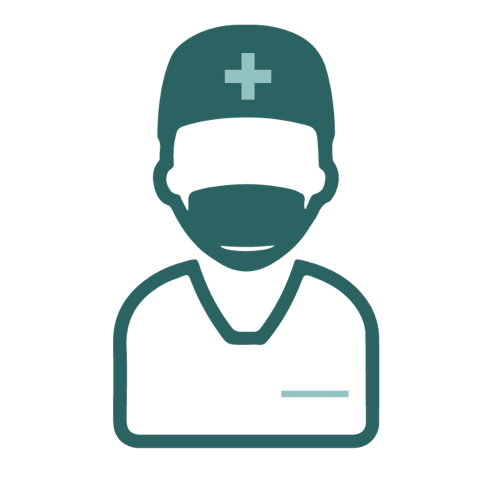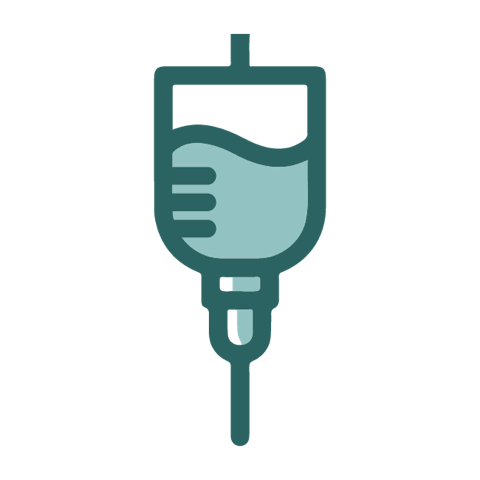There are many cancer treatment options available besides the conventional ones. Unfortunately, not many doctors or health practitioners are familiar with working together, leading to fear and distrust among professionals who should be connected by a common aim: the well-being and survival of their patient.
| ○ |
Conventional Treatments: these are standard treatments offered to patients through conventional western medicine. These treatments are most effective if a cancer is caught early (Stage I or Stage II), when it can be cut out, irradiated (radiotherapy) or poisoned (chemotherapy) to shrink the tumour. Unfortunately, they are often not as effective in advanced or late stage cancer (Stage III or IV), and also do not come without side effects. |
| ○ |
Complementary Alternative Treatments: the integrative approach to cancer attempts to combine the healing and supportive benefits of complementary alternative medicine with the destructive power of conventional treatments. |
CONVENTIONAL TREATMENTS





SURGERY
Surgery is the oldest modality of cancer therapy and still forms the mainstay of treatment in solid tumors, like for breast cancer treatment. This approach has curative potential when combined with appropriately selected adjuvant treatments. At Life Cancer Care, whether surgery is opted in or out, we will select the most appropriate complimenting therapy to ensure you receive the support you need.
PROGRESS OF CHEMOTHERAPY
For the majority of cancers, not much progress has been made to improving survival rates in the last 50 years. Indeed a review in 2012 of all the published cancer research, found that apart from a small number of cancers (childhood leukaemias, some lymphomas, testicular and some uterine cancers), having chemotherapy only made a 2.5% difference to a 5-year survival. That is after all the hair loss, sickness, mouth ulcers, numb hands and feet and overwhelming fatigue that many cancer patients have to suffer as part and parcel of the treatment.
TOXIC SIDE-EFFECTS
The toxic side-effects of chemotherapy occur because of the non-specific nature of the drugs’ destruction: normal fast-replicating cells such as hair, gut and bone marrow, are also damaged in addition to cancer cells. This is particularly so because most protocols use the highest dose possible a human can tolerate (or “maximum tolerated dose”), with unfortunate consequences on the normal cells and an immune system vital in preventing the cancer cells from spreading.
RADIOTHERAPY
Radiation therapy (RT) is a clinical modality dealing with the use of ionizing radiations to treat cancer. Radiation Therapy is a common cancer cell treatment of breast, prostate, cervix, head and neck, lung, and brain, as well as sarcomas.₁
Because radiation affects normal tissues and tumors, achieving an acceptable therapeutic ratio—defined as the probability of tumor control versus the probability of unacceptable toxicity—requires that the radiation dose be delivered within very tightly controlled tolerances with less than 5 percent deviation.
At Life Cancer Care, we use natural cancer treatments to help minimize the damaging effects of radiotherapy on the body should you choose to include this in your cancer treatments.
₁ Gelband H, Jha P, Sankaranarayanan R, et al., editors.
Washington (DC): The International Bank for Reconstruction and Development / The World Bank; 2015 Nov 1.
TARGETED THERAPY
Targeted therapies (or monoclonal antibodies) are specially manufactured immune cells designed to attack the cancer at specific points on the cell. They offer the promise of stopping cancer with fewer side-effects, but they can often be expensive, and their initial success, often short-lived.
The reason for this, may be that whereas targeted therapy may block a receptor for tumour growth (such as VEFR or EGF) or a messenger for new vessel formation (angiogenesis), the tumour has multiple pathways to grow and spread. If one mechanism is blocked, it just finds another way around it.
HORMONAL THERAPY
Hormone therapy is a cancer treatment that slows or stops the growth of cancer that uses hormones to grow. Hormone therapy falls into two broad groups, those that block the body’s ability to produce hormones and those that interfere with how hormones behave in the body. Because hormone therapy blocks your body’s ability to produce hormones or interferes with how hormones behave, it can cause unwanted side effects.₁
At Life Cancer Care, we can curate supportive complementary therapies in order to minimize the effects of hormonal therapy which may include:
Nausea
Mood change
Hot flashes (women)
Low libido
Fatigue
₁ Hormone Therapy to treat Cancer, National Cancer Institute
LIFE CANCER CARE COMPLEMENTARY APPROACH
Up to 80% of patients will seek out nutritional, supplementary or alternative cancer treatments to their standard options. These are numerous, but can be broadly categorised in to:
At Life Cancer Care, we believe that there is no single treatment, drug, herb or supplement that can cure all cancer. Rather, we have developed an holistic approach that allows us to tackle cancer from a variety of angles. Our treatment plan consists of 7 consistent and regular actions which have demostrated to provide a higher success rate in beating cancer.
IN CONCLUSION…
Whereas the disadvantages of conventional chemotherapy may be clear to many, the advantages are that they are usually based on large clinical trials, and that this offers a certain degree of certainty, which may be important to some patients, even if the difference may not be great and seldom leads to a “cure”. This loss of quality of life and minimal difference to survival for most advanced cancers, leads many patients and their loved ones to search for complementary cancer treatments.






